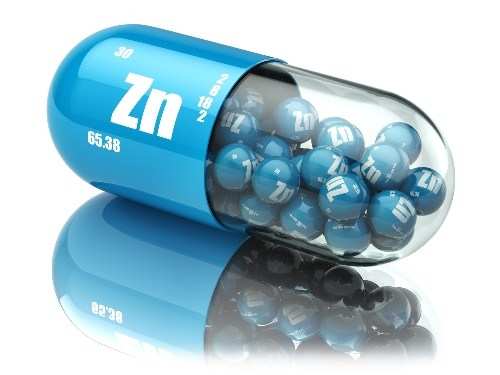And We Thought Zinc is ONLY for GALVANIZATION
Zinc is not only for galvanization. It is an essential micronutrient in the body.

Zinc is an essential micronutrient in the body and a component of many complex structures in the body including enzymes and proteins. The link between Zinc and memory is well studied especially because Zinc deficiency can cause MEMORY LOSS. In fact, Zinc is the only metal to appear in all classes of enzymes. Zinc supplements have also been proven to speed up healing after an injury, stimulate the sense of smell and promote the activities of over 100 enzymes in the body.
The human body usually contains 2 – 4 gm of Zinc at any time. The recommended daily intake value of Zinc is 8 mg/day for women and 11 mg/day for men. This quantity is widely distributed and mostly found in the brain, liver, kidney, muscle and bone but highly concentrated in the prostate and the eyes. The semen is another rich site of Zinc and the mineral is known to contribute to the growth of reproductive organs. In the brain, Zinc is held in the glutamatergic pathway and its chief function is to control excitability. It contributes to learning. However, high levels of Zinc in the brain can be neurotoxic. Therefore, the central nervous system closely regulates the amount of Zinc it holds.
Once absorbed into the blood, Zinc is bound to the proteins, albumin and transferrin.
Referring to the soil, the Zinc contents of plants depend on the amount of Zinc in the soils in which they are grown. Where the soil is rich in Zinc, the best plant dietary sources of Zinc include the seeds of alfalfa, sesame, sunflower, poppy, pumpkin, celery and mustard; wheat germ and bran; as well as beans, nuts, whole grains, blackcurrant and almonds. Other sources of Zinc include supplements and fortified foods.
Topical Zinc preparations are used to protect against sunburn, windburn and diaper rash. Because Zinc ions have antimicrobial effects, Zinc Lactate is used in toothpastes and Zinc Pyrithione is an ingredient of shampoos.
Although Zinc deficiency is largely uncommon in the developed world, it affects about 2 billion people worldwide.
Signs of Zinc deficiency include impaired growth, impaired immune system, loss of appetite, diarrhoea, impotence, hair loss, soft tissue lesions and cognitive decline.
Don’t be surprised, Zinc deficiency also affects your Memory – How!!!
Over the years, it has been shown that some people with memory impairment do have Zinc deficiency. In a study done on mice by researchers from Duke University Medical Centre and Massachusetts Institute of Technology, the role of Zinc in the brain has been highlighted.
Zinc is stored and released in the brain from nerve cells that are also responsible for releasing the neurotransmitter, glutamate. The released Zinc can act on glutamate receptors and other voltage-gated ion channels in the brain. It can also modulate synapses (a property known as synaptic plasticity). Both of these effects contribute significantly to learning and memory. Zinc deficiency affects short-term memory more than long-term memory.
Hindustan Zinc is India’s only and world’s leading Zinc-Lead-Silver Producer..
Article by- Pavan Kaushik, Head – Corporate Communication, Hindustan ZincTo join us on Facebook Click Here and Subscribe to UdaipurTimes Broadcast channels on GoogleNews | Telegram | Signal


